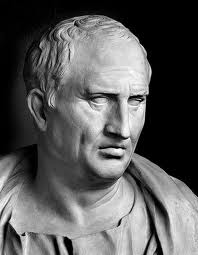Americanism Redux
September 7, 250 years ago today
The signboard of The Dog and Pot hangs over the front door of the same-named tavern in Boston.
Sign of The Dog and Pot tavern in Boston
Inside, candles flicker in lanterns fixed to the walls. Scattered across heavy tables are tankards of ale, a tin plate or two, a carved wooden bowl, and half-filled bottles. The air smells of old embers and ashes, with dark plank boards soaked and dried with sweat, steam, and the curling smoke of pipe tobacco. Men sit in small groups, or in one’s and two’s. A few of them hold in their hands today’s edition of the Boston-Gazette and Country Journal. A reader talks aloud about a poem on Page Two. It’s a featured piece in the newspaper.
The poet writes about “Satan and his IMPS employed.” The Devil, it seems, has his sight set on Britain as one of earth’s perfect places. Rulers in France and Spain have been seeking the Devil’s help in breaking Britain apart, in promoting division between England and its North American colonies. The Devil has listened and the Devil has acted.
The poet reminds his newspaper readership that it was the Devil behind the violence and bloodshed in Boston in the Stamp Act riots of 1765 and the Boston Massacre of 1770, just seven and two years ago, respectively.
The poet suggests that the Devil is anywhere and everywhere in keeping the divisions burning between England and Boston, between “Britain and Columba.” “These Schemes of Artifice and Cruelty/Shall followed be.”
The poet ends his poem with a coded phrase. It’s Latin, written by Cicero, a favorite classical commentator among those eager to prevent further British control. For those in The Dog and Pot who can translate into English, it reads:
“The question is not now respecting our revenues, or injuries to our allies; our liberties and lives are all at stake.”
Cicero
The fire burns low behind the black-stained hearth along one wall of the tavern. The owner of The Dog and Pot gently tosses two more logs onto the grate. Sparks drift upward through the chimney. A table is empty with only a copy of today’s newspaper laying next to rings of moisture where the tankards once were.
Also
As if on cue, a rumor circulates in the street outside The Dog and Pot. It will certainly cross the tavern’s threshold and slide amongst the tables. No sooner than the reader hands his copy of the newspaper over to a friend before the rumor rises with the woodsmoke.
Boston’s judges will no longer be paid by local townspeople. An imperial fund, controlled by officials outside the town, outside the colony, outside the continent, will pay the judges who interpret the laws that govern the people who come and go at The Dog and Pot and elsewhere in Boston.
Site of the Massachusetts colonial legislature
So says the rumor. So says the report.
If true, and it likely will be by the time you swallow the last of the ale in your tankard, the change means another loss of local power and local control.
For You Now
Something happened two or five or ten years ago and it was massively important in your view of things. Left a deep imprint on how you think about the world, about the people in the world, about the rights and wrongs of how the world goes. Yes, that thing happened and it is not leaving your mind anytime soon.
And the next time a thing happens that looks or feels or smells like the imprint in your mind, you’re convinced that it’s back again, starting again, picking back up where it left off again.
This is the mindset and the outlook of a lot of people you know.
Maybe it’s you, too.
So much needs to be sorted out at a moment like that, a moment like this. As a leader, with one or more followers, the questions begin to stack and weigh.
Is it true?
Is it the same mostly?
Is it different in a crucial way?
Is it likely to open the door for more and more?
Is it stoppable?
Is it directable?
Is it random?
Is it worth all of this or can life simply move on?
Is it understandable by itself or does it require someone to help me interpret it?
The newspaper. The poet. The reader. The tavern. The rumor, the report, the reported rumor, and the rumored report.
A burning candle and a burning log share the element of fire. The differences, though, are broad. Purpose. Duration. Danger. Necessity.
Suggestion
Think about what it takes to convince you—or not convince you—of a pattern comprised of single events.










